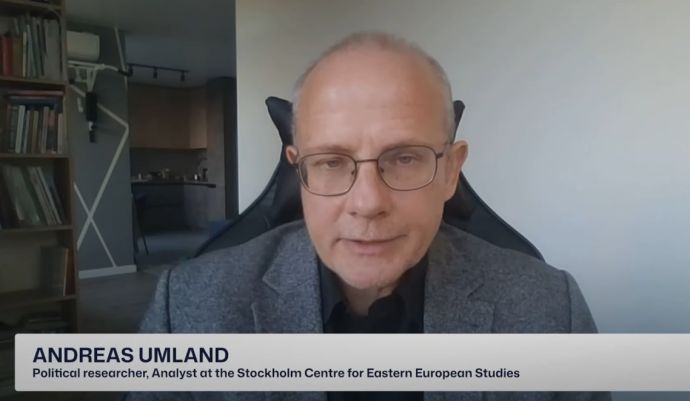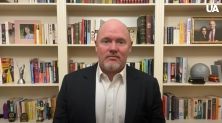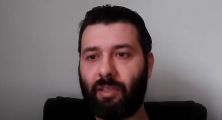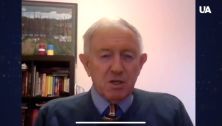The U.S. Pentagon chief went to Kyiv to announce more support for Ukraine amid the disturbing news of North Korean soldiers being deployed to Ukraine. $400 million will be allocated as part of the next defense package from America. Ukraine’s intelligence chief Kyrylo Budanov announced that 11 thousands of recruits from North Korea are being prepared in Russia’s far East. To be then sent to the front line in Ukraine and Russia’s Kursk region.
German politics are very complicated, and the current diplomatic situation between Ukraine and Germany is very ambiguous but still pro-Ukrainian. We have discussed this with Andreas Umland – a skilled researcher at the Stockholm Centre for Eastern European Studies.
— There are political conditions under which Chancellor Olaf Scholz would be forced to give the go-ahead for the Taurus missiles? I’m not saying the direct transfer, but the go-ahead, like the agreement to use them?
— So far, I think there are no signs that indeed Scholz will give such permission, and that these cruise missiles will actually be delivered to Ukraine—neither from Germany nor from other countries. Because even if other countries wanted to give them to Ukraine, Germany would have to agree, and that seems to be, so far, not possible.
My suspicion is that as long as Scholz remains Chancellor of Germany, such permission will not be given. We have seen a political discourse in Germany where the Chancellor opposes Ukraine joining NATO. As far as we know, maybe other politicians have a different opinion on this.
— Yes, there is a range of opinions even within the current governing coalition, which consists of three parties: Scholz’s Social Democratic Party, the Green Party, and the Free Democratic Party of Germany (the liberals). They have different views on that.
— The Green Party is perhaps the most pro-Ukrainian party. However, I think the accession of Ukraine to NATO, as long as the war continues, doesn’t look very likely. One would have to have the agreement of 32 member countries of NATO, and it doesn’t seem very likely so far.
Perhaps the question for next year will be whether Ukraine will receive an invitation to NATO rather than immediate accession.
German politicians seem to be far too cautious in projecting force against Russia.
— Why are they so afraid? Maybe there’s some inside reason for this?
— They are afraid because they are fearful of Russia. There’s sometimes the suspicion that there are economic interests or lingering sympathies for Russia.
However, I think the most important factor nowadays is simple fear of Russia.
Sometimes it’s simply referred to in English with the German word Angst, a sort of panic—a panicking fear that sees, for instance, a delivery of the Taurus missiles to Ukraine as the start of World War III, perhaps even a nuclear war.
That’s why there is so much resistance in Germany against delivering these weapons or Ukraine’s accession to NATO as long as the war continues.
But otherwise, Germany still is relatively pro-Ukrainian, and the Russian Federation has lost its reputation. This has less to do with the war itself and more with the threats coming from Moscow.
— Perhaps a final question or your opinion about Ukrainian-German relations: how do you view them right now? Should there be some differences and different approaches from the Ukrainian side, or could Germans ramp up their support in other formats? What’s your opinion on German-Ukrainian diplomacy right now?
— It’s a difficult and ambivalent relationship, and therefore also a complicated diplomacy. Germany, in spite of the resistance against delivering the Taurus missiles or Ukraine’s accession to NATO during the war, still offers significant support for Ukraine—not as much as one would hope.
Not as much, let’s say, in terms of the percentage from GDP as there is from countries like Denmark or Sweden. But there’s still support for Ukraine, including military support and heavy weaponry.
Also, the German public opinion, although unfortunately still against delivering Taurus missiles, is mostly in favor of supporting Ukraine militarily. A significant part of the electorate even supports more assistance to Ukraine than is currently being provided.
Read also: Why Peace Is Still Not an Option in the Middle East? Commenatary of Marcin Krzyzanovski










